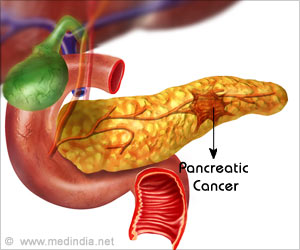Highlights
- Chemotherapy drugs can cause debilitating side effects including peripheral neuropathy that causes nerve pain and damage.
- Supplementing with nicotinamide riboside (NR), a form of vitamin B3 has proven to be beneficial in such cases.
- Nicotinamide riboside helps increase the levels of nicotinamide adenine dinucleotide (NAD+) and together they offer protection against many types of nerve damage.
Many anti-cancer drugs cause chemotherapy-induced peripheral neuropathy (CIPN), which is nerve damage and pain.
"Chemotherapy-induced peripheral neuropathy can both hinder continuation of treatment and persist long after treatment has ended, severely affecting the quality of life of cancer patients," says Marta Hamity, PhD, UI assistant research scientist and first author on the study.
"Our findings support the idea that NR could potentially be used to prevent or mitigate CIPN in cancer patients, resulting in a meaningful improvement in their quality of life and the ability to sustain better and longer treatment." Hamity added.
Testing the Effects Nicotinamide Riboside on Rats
Researchers tested the effect of NR in female rats that were treated with paclitaxel, a chemotherapy commonly used to treat breast and ovarian cancer.
This effect lasted at least five weeks beyond the end of the chemotherapy.
The team used a standard test to assess the pain caused by CIPN.
The rats were given a light foot poke. Researchers found that those rats treated with the paclitaxel were hypersensitive to the light touch and this caused them to withdraw their foot. On the other hand, untreated rats did not withdraw their foot.
NR boosts levels of an important cell metabolite called nicotinamide adenine dinucleotide (NAD+).
Previous animal studies have shown that increasing NAD+ levels with NR can offer protection against many types of nerve damage.
The new study found that supplementing with NR, helped to increase levels of NAD+ in the rats’ blood by about 50%.
The rats were given prophylactic treatment for 7 days with daily doses of NR (200 mg/kg) before chemotherapy was started and this continued for 24 days after the chemotherapy ended.
This helped to prevent the hypersensitivity to touch in the rats and the protective effect lasted for at least two weeks after the NR supplementation stopped.
The research team devised a new method to measure how unpleasant the light touch was to the rats with CIPN.
Rats were given a choice between a dark environment and a brightly lit environment. By nature, the rats prefer dark. In the dark environment, their feet were repeatedly poked.
The team found that untreated rats tolerated several pokes before they were prompted to leave a darkened area.
In contrast, rats with CIPN would leave the dark chamber after much fewer pokes and remain in the light.
Rats receive NR supplementation along with chemotherapy behaved more like untreated rats and tolerated more poking before leaving the dark.
"The touch sensitivity test measures the threshold where a light touch that normally is not painful is now perceived as painful because of the neuropathy. For example, people with CIPN can find the light touch of clothes or typing on a keyboard painful," Hamity explains.
"In the case of the ’escape’ test, we were trying to mimic how unpleasant a normal stimulus can be because of the neuropathy, and if that would cause you to avoid it even if it means choosing an activity that you don’t enjoy. For example, typing can become so painful that you avoid doing it even if it means not being able to work." Hamity added.
When NR treatment was started 14 days after the chemotherapy treatment, it reversed touch hypersensitivity in some, but not all, of the animals. But it helped reduce the ‘escape’ behavior in rats.
Conclusion
The study is the first to measure this behavioral impact of CIPN as well as the hypersensitivity to touch.
It is also among the first to use female rats to investigate CIPN.
"The preclinical literature is rife with drugs that alleviate chemotherapy-induced peripheral neuropathy but that fail to do so under rigorous clinical testing," Hammond says. "We believe we are using a model that is more clinically relevant - but the true test of that will not be made until the clinical trial is done."
The findings are published in the Journal of the International Association for the Study of Pain (PAIN).
Reference
- Marta Hamity et al. Nicotinamide riboside, a form of vitamin B3 and NAD+ precursor, relieves the nociceptive and aversive dimensions of paclitaxel-induced peripheral neuropathy in female rats. Journal of the International Association for the Study of Pain; (2017) DOI: 10.1097/j.pain.0000000000000862
Source-Medindia















